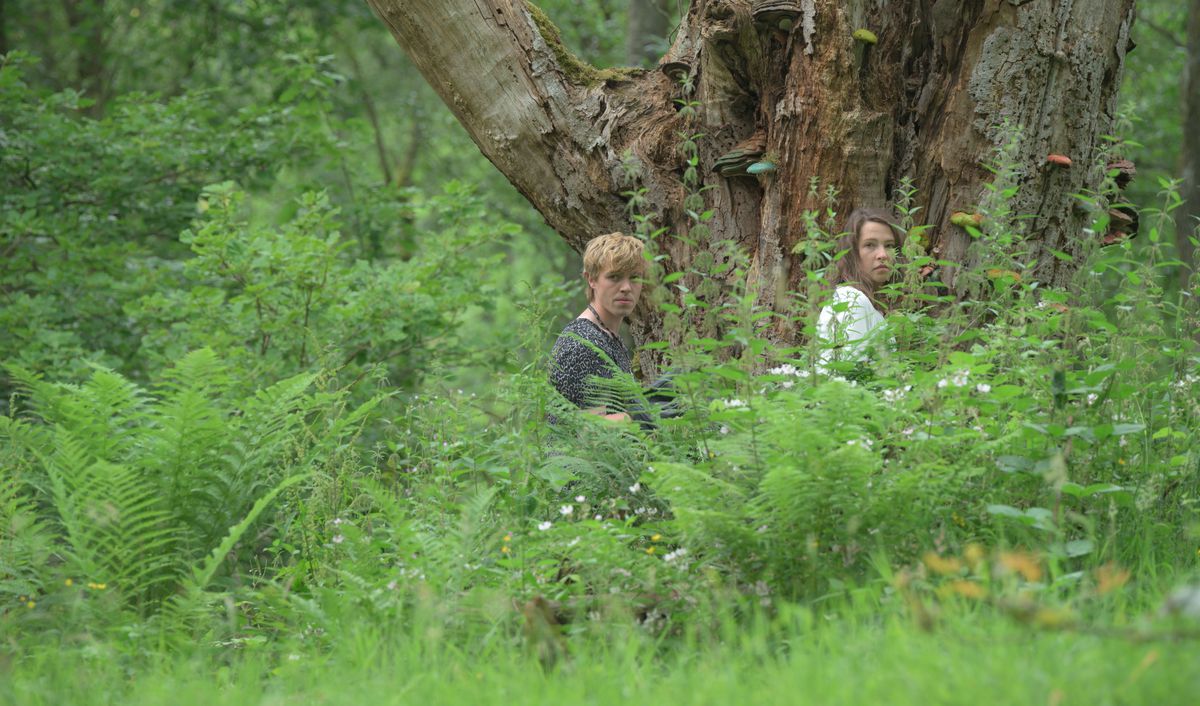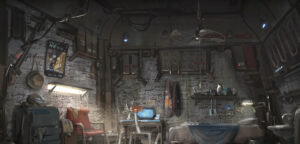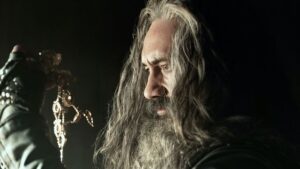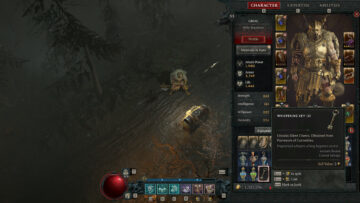Dinner parties can be their own kind of torture, and in cinematic form, they’re ripe locations to mine social discomfort. When directors trap people in a room together and aggressively enforce social niceties, they’re just cueing up the squirming resentments and discontent. Black comedies like Sally Potter’s The Party, thrillers like Karyn Kusama’s The Invitation, or dysfunctional family dramas like John Wells’ August: Osage County — they all pinpoint that moment during a get-together when politeness gives way to honesty, and small talk becomes real talk. All hell breaks loose then. The Welsh horror movie The Feast is a quiet little marvel of a movie that thrives on that kind of discomfort, leading up to exactly that chaos.
Simultaneously elegant and grisly, The Feast is the latest in this year’s mini-trend of environmentally focused horrors, following In the Earth and Gaia. Director Lee Haven Jones and writer Roger Williams build an atmosphere of omnipresent stillness (dense forests, sprawling moors), then contrast it with the pollutive presence of people. Cinematographer Bjørn Ståle Bratberg captures in closeups the malevolence of man-made machines: the pumping grind of an oil rig drawing viscous fluid up from underground, the metallic glint of a double-barreled shotgun set in the grass, the dull thud of an axe head as it topples to the ground. Independently, these items are theoretically signs of civilized progress. Together, they take on a more ominous tone, asking “How much of our creativity is inspired by dominating the world around us, and at what cost?”
The Feast takes place entirely over a single day in a remote mansion in the Welsh mountains that’s accessible only by a dirt road. It’s set far off from its neighbors, and populated by an upper-class family whose members seem barely able to stand each other. Glenda (Nia Roberts), wife of local politician Gwyn (Julian Lewis Jones), is a passive-aggressive cascade of complaints and humblebrags: The local grocery store doesn’t carry bok choy, so they had a courier deliver it fresh to their home. The pub owner she originally hired to help her prepare and serve during a dinner party canceled at the last minute, which doesn’t suit Glenda’s aspirations. “I want to make a good impression,” she says. So when a young woman, Cadi (Annes Elwy) arrives at the end of their drive, Glenda immediately assumes she’s the pub owner’s replacement, and starts bossing her around.
The explicit classism of that dynamic draws irritation from Glenda’s son Guto (Steffan Cennydd), who is curious about the quiet Cadi, and amusement from her other son, Gweirydd (Sion Alun Davies), whose hungry stare at Cadi gives off serious American Psycho vibes. Cadi is as curious about them as they are about her, and Jones incrementally ratchets up the audience’s anxiety as Cadi wanders around this strange house. In the narrow sauna room, the slivered-open doors reveal an interior that looks like a prison. Gweirydd’s bedroom has its floor-to-ceiling windows uncovered, so he can peer out — or someone else can peer in. The Feast sets out on a path of voyeurism, and then, through Williams’ slyly revelatory script and a couple of well-edited, jarringly violent sequences, subverts expectations regarding who’s trespassing here, and who’s being trespassed on.

The Feast requires patience, and some of its stylistic flourishes don’t exactly work. The film is divided into half a dozen chapters or so, with title cards that reveal upcoming lines. Their inclusion doesn’t add anything to the already sparse, impact-heavy dialogue. The folklore element could use some more contextualization, and the flirtation with a haunted-house setup would have been intriguing to explore. But there is also power in how committed The Feast is to its driving idea, and in how fully it coats that conceit with gross, slimy, and squishy stuff when the time comes.
What would we look like if we were really from the earth, and what horrors are affiliated with returning to our origins? Jones offers an array of visuals mirroring the film’s suggestion that humanity is a kind of invasion: a smear of dirt on a piece of brightly colored modern art; drops of blood falling into translucent bathwater; a dribble of vomit falling into a nicely prepared meal for a dinner party. By probing at the ways people are on their best behavior while inherently personifying the worst effects of capitalism and greed, and knowing when to abandon modesty for brutality, Jones and Williams turn The Feast into one of the year’s most smartly conceived, plainly effective horrors.
The Feast debuts in limited theatrical release and on digital rental platforms like DirecTV and Vudu on Nov. 19.
Source: https://www.polygon.com/reviews/22792235/the-feast-review-horror
- All
- Anxiety
- around
- Art
- Atmosphere
- BEST
- Black
- blood
- build
- canceled
- capitalism
- complaints
- content
- Couple
- creativity
- day
- digital
- Director
- directors
- dozen
- driving
- Effective
- environmentally
- family
- Film
- form
- fresh
- good
- grocery
- head
- here
- Home
- House
- How
- HTTPS
- Humanity
- Hungry
- idea
- inclusion
- IT
- latest
- leading
- Limited
- local
- Machines
- mansion
- Marvel
- Members
- mine
- mirroring
- Modern
- movie
- neighbors
- Offers
- Oil
- Other
- owner
- People
- Platforms
- Polygon
- power
- prison
- requires
- rig
- road
- set
- shotgun
- Signs
- small
- So
- Social
- son
- Sponsored
- store
- Stories
- The
- the world
- theoretically
- time
- us
- What
- WHO
- windows
- woman
- Work
- world
- writer
- youtube











